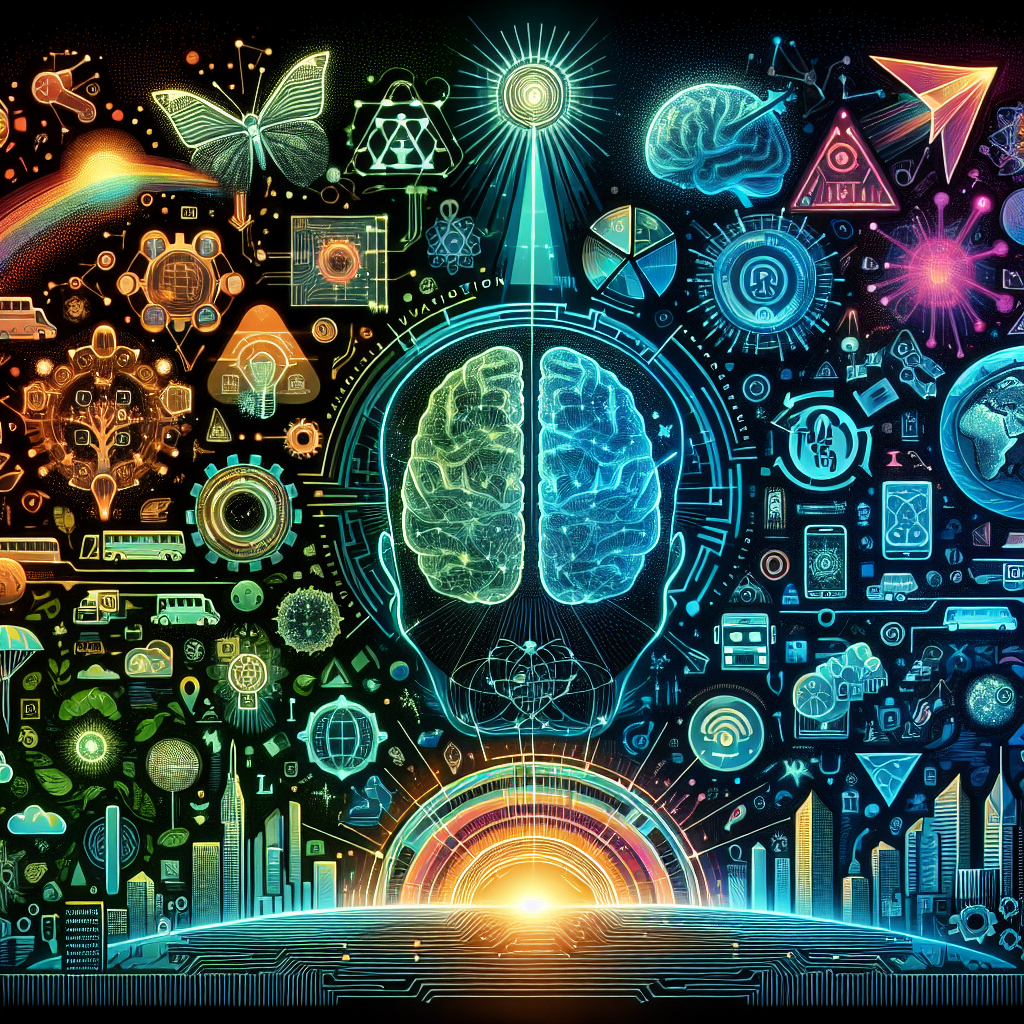AGI Revolution: How Artificial General Intelligence Will Transform Our World
Artificial General Intelligence (AGI) is a type of artificial intelligence that possesses the ability to understand, learn, and apply knowledge in a way that is comparable to human intelligence. Unlike narrow AI, which is designed for specific tasks, AGI has the potential to perform a wide range of cognitive tasks and adapt to new situations.
The development of AGI has the potential to revolutionize our world in ways that we can hardly imagine. From healthcare to transportation, education to entertainment, AGI has the power to transform every aspect of our lives. In this article, we will explore the impact of AGI on various industries and discuss the potential benefits and challenges that come with this revolutionary technology.
The Impact of AGI on Different Industries
Healthcare: One of the most promising applications of AGI is in the field of healthcare. AGI has the potential to revolutionize medical diagnosis and treatment by analyzing vast amounts of data to identify patterns and make predictions. This could lead to more accurate diagnoses, personalized treatment plans, and better outcomes for patients.
Transportation: AGI could also have a significant impact on the transportation industry. Self-driving cars powered by AGI could make roads safer and more efficient by reducing human error and improving traffic flow. Additionally, AGI could enhance logistics operations by optimizing routes and schedules to minimize costs and improve delivery times.
Education: AGI has the potential to transform the way we learn and teach. Intelligent tutoring systems powered by AGI could provide personalized learning experiences tailored to each student’s unique needs and abilities. This could help students learn more effectively and efficiently, leading to improved academic outcomes.
Entertainment: AGI could also revolutionize the entertainment industry by creating more immersive and interactive experiences. Virtual reality games powered by AGI could provide players with personalized challenges and storylines based on their preferences and behaviors. Additionally, AGI could be used to create lifelike virtual characters that interact with users in real-time.
Benefits of AGI
Efficiency: AGI has the potential to automate repetitive tasks and processes, freeing up human workers to focus on more complex and creative work. This could lead to increased productivity and efficiency across a wide range of industries.
Innovation: AGI has the ability to generate new ideas and solutions by analyzing vast amounts of data and making connections that humans may not see. This could lead to breakthroughs in science, technology, and other fields that have the potential to benefit society as a whole.
Personalization: AGI has the potential to provide personalized experiences in areas such as healthcare, education, and entertainment. By analyzing individual preferences and behaviors, AGI can tailor its recommendations and interactions to meet the unique needs of each user.
Challenges of AGI
Ethical concerns: As AGI becomes more advanced, there are concerns about how it will be used and who will have control over it. Issues such as privacy, bias, and accountability are important considerations that must be addressed to ensure that AGI is used responsibly.
Job displacement: The automation of tasks and processes by AGI has the potential to disrupt labor markets and lead to job losses in certain industries. It will be important for policymakers to develop strategies to retrain workers and create new opportunities for employment in a world powered by AGI.
Security risks: AGI could also pose security risks if it falls into the wrong hands. Malicious actors could use AGI to launch cyber attacks, manipulate information, or carry out other harmful activities. It will be important for cybersecurity experts to develop defenses against these potential threats.
FAQs
Q: What is the difference between AGI and narrow AI?
A: AGI is a type of artificial intelligence that possesses the ability to perform a wide range of cognitive tasks and adapt to new situations, similar to human intelligence. Narrow AI, on the other hand, is designed for specific tasks and lacks the ability to generalize to new tasks.
Q: When will AGI be developed?
A: The development of AGI is a complex and challenging task that is still in its early stages. While some experts predict that AGI could be achieved within the next few decades, others believe that it is still many years away.
Q: How will AGI impact society?
A: AGI has the potential to revolutionize every aspect of society, from healthcare to transportation, education to entertainment. While the benefits of AGI are vast, there are also challenges that must be addressed to ensure that it is used responsibly and ethically.
In conclusion, the development of AGI has the potential to revolutionize our world in ways that we can hardly imagine. From healthcare to transportation, education to entertainment, AGI has the power to transform every aspect of our lives. While there are challenges that must be addressed, the benefits of AGI are vast and have the potential to benefit society as a whole. It will be important for policymakers, researchers, and industry leaders to work together to ensure that AGI is developed and deployed in a responsible and ethical manner.

